
In the summer of 1100, a young woman rode swiftly to Kent on a mission to save her marriage – before it had even begun. She had spent much of her early life in the confines of abbeys in Wilton and Romsey, yet now she found herself racing east towards Canterbury Cathedral and an appointment with the church’s long-serving archbishop, Anselm.
To gain an audience with England’s most senior churchman in its religious heart was a extraordinary privilege. Yet the marriage the woman was attempting to secure that summer day was anything but ordinary.
That’s because the woman – known to history as Matilda of Scotland – had royal blood coursing through her veins. Aged no more than 20, she was the daughter of a Scottish king and an English princess. And her would-be husband was King Henry I, perhaps 12 years her elder.
Henry had come to the English throne just weeks earlier after his older brother, William II (known as Rufus), had been killed by a stray arrow while hunting in the New Forest. Now Henry was set on marrying Matilda – and, from what we can tell, the feeling was mutual. Yet there was an obstacle standing between the royal lovers and their marriage: Matilda’s aunt, Christina.
Christina, herself a nun and probably effectively Matilda’s guardian at the abbey, swore that her niece had pledged herself to God in a vow of chastity, and therefore was not free to wed any man – even if he was king of England. So Matilda made that headlong ride in a desperate bid to persuade Anselm that she had never taken vows, and had worn a nun’s veil only for protection from assault.
This story is from the {{IssueName}} edition of {{MagazineName}}.
Start your 7-day Magzter GOLD free trial to access thousands of curated premium stories, and 9,000+ magazines and newspapers.
Already a subscriber ? Sign In
This story is from the {{IssueName}} edition of {{MagazineName}}.
Start your 7-day Magzter GOLD free trial to access thousands of curated premium stories, and 9,000+ magazines and newspapers.
Already a subscriber? Sign In

Viking mussels
ELEANOR BARNETT digs into archaeological research to recreate a Viking-cum-AngloSaxon seafood dish from medieval York
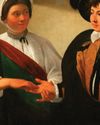
Fingers, frog's and fairies
Fortune telling was all the rage in the 16th and 17th centuries, and practitioners would stop at nothing to tap in to the supernatural. Martha McGill tells a story of Highland seers, tarot cards and encounters with the spirit world

Nothing matches being with Alexander the Great on foot in the Hindu Kush
AT OUR LITTLE FILM COMPANY, MAYA VISION, we recently took the decision to digitise all of the rushes of our key films so that we could dispose of hundreds of boxes of tapes that had been kept in storage, throwing out stuff we thought we would never need again.

Library of the dead
Highgate Cemetery, created as a fashionable resting place for wealthy Victorian dead, is a veritable who's who of London's great and good. PETER ROSS roams the avenues of this most atmospheric necropolis
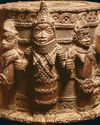
Slavery, exploitation and racism. These tragedies have long dominated histories of Africa. But there's another way to tell this story. And it's one that puts Africans right at the centre of their continent's extraordinarily rich and vibrant past
An 1414, in the Chinese city of Nanjing, a giraffe caused a stir. Amid a crowd of shocked, noble spectators, an official, leading the creature via a rope tied round its face, presented it to China's Yongle emperor. His officials said it was a qilin - an auspicious unicorn - which his sage governance had made appear.
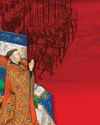
England's forgotten hero
When the Hundred Years' War was reaching a climax, one man was fighting tenaciously to secure the English claim to the French crown. So why, asks Joanna Arman, is Henry V's formidable brother, John, Duke of Bedford, not better known?
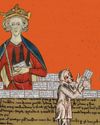
HENRY III AND THE MAGNA CARTA THAT MATTERED
King John's sealing of a charter at Runnymede in 1215 is one of the most feted moments of the Middle Ages. Yet, writes David Carpenter, it was the charter issued by his son 10 years later that became fundamental to England's history
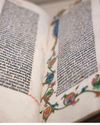
Gutenberg publishes a pioneering new book
‘The printing press triggers an information revolution
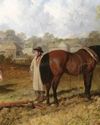
How empire ruptured rural Britain
We know that enslaved Africans and their descendants suffered in the distant colonies of empire. But, as Corinne Fowler explains, the colonial system also had dire impacts on people in the countryside of the 'motherland'

"I FELT VERY ALONE IN A WORLD GONE HORRIBLY MAD"
It was a moment of possibilities, dislocation and dread. Dan Todman tells the story of the 1.5 million urban Britons evacuated to the countryside at the start of the Second World War